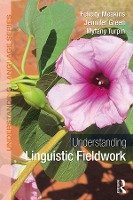Understanding Linguistic Fieldwork offers a diverse and practical introduction to research methods used in field linguistics. Designed to teach students how to collect quality linguistic data in an ethical and responsible manner, the key features include:
A focus on fieldwork in countries and continents that have undergone colonial expansion, including Australia, the United States of America, Canada, South America and Africa;
A description of specialist methods used to conduct research on phonological, grammatical and lexical description, but also including methods for research on gesture and sign, language acquisition, language contact and the verbal arts;
Examples of resources that have resulted from collaborations with language communities and which both advance linguistic understanding and support language revitalisation work;
Annotated guidance on sources for further reading.
This book is essential reading for students studying modules relating to linguistic fieldwork or those looking to embark upon field research.

